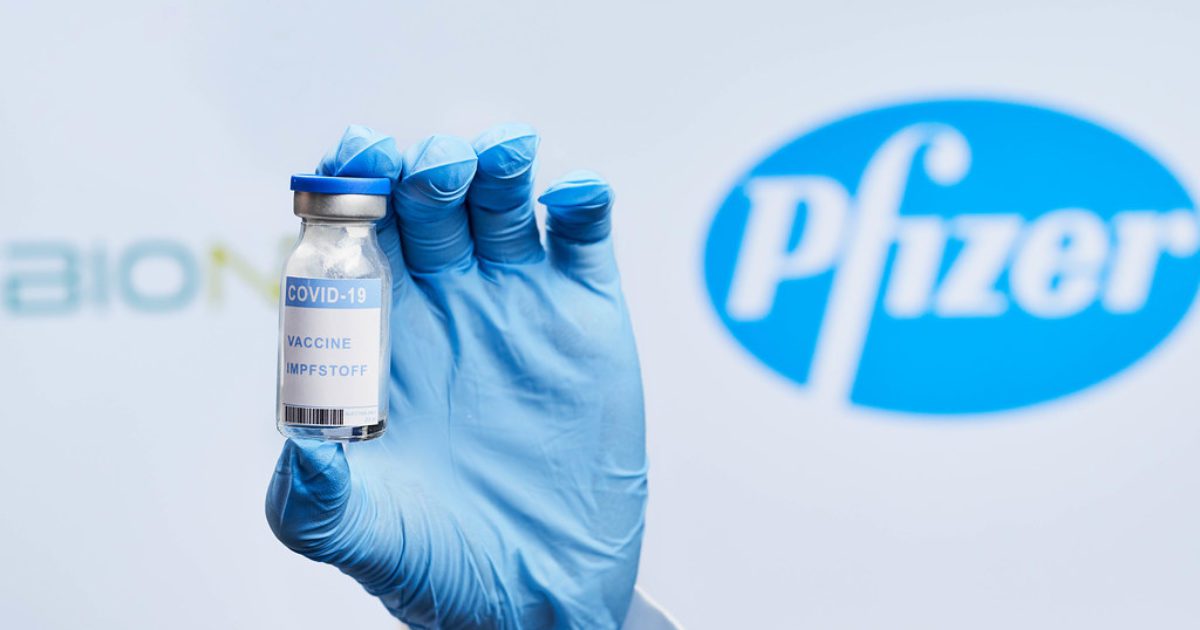Check off another ‘conspiracy theory’ as a proven fact from the drawing board!
According to a newly released peer-reviewed medical study, a group of 37 sperm donors that provided 220 samples experienced a −15.4% sperm concentration decrease and 22.1% reduction in total motile count.
NEW – Pfizer's primary mRNA injections "temporarily" impair semen concentration and total motile count among donors.
The scope of the study did not include the effects of additional "booster" injections.https://t.co/wRtL6bCxdx
— Disclose.tv (@disclosetv) June 19, 2022
Since the COVID-19 jab rollout began, ‘experts’ have continued denying that Pfizer’s experimental shot may impact male and female fertility.
According to a USA Today report in 2021, a CDC-supported study published in the Journal of the American Medical Association said the COVID-19 jab did NOT impact fertility.
However, samples were only analyzed in subjects 70 days after the second dose, leading to inconclusive data related to the long-term impacts of the experimental shot.
From USA Today:
The participants were prescreened to ensure they had no previous or underlying fertility issues. Semen samples were taken before the first vaccine dose and approximately 70 days after the second, which is about how long sperm takes to regenerate.
Scientists analyzed semen volume, sperm concentration, sperm motility and total sperm count and found no significant decrease in any of these parameters compared with the samples taken before the COVID-19 shots.
“It was an unknown area that was making guys nervous to get the vaccine,” said study co-author Jesse Ory, urology fellow in infertility/andrology at the University of Miami Miller School of Medicine.
Despite the low sample size, the results were in line with what health experts expected. According to the study, eight participants who had low sperm counts before getting vaccinated recorded normal levels of sperm in their second sample.
But the latest study has shown the mainstream media and public health agencies lied about the Pfizer COVID-19 jab’s impact on fertility.
That comes as no surprise to anyone who conducts honest research.
In this study, semen samples from participants were taken in three stages over a five month duration after receiving the second dose.
The results showed a significant drop in sperm concentration and total motile count.
From Wiley Online Library:
Methods
37 SD from three sperm banks that provided 220 samples, were included in that retrospective longitudinal multicenter cohort study. BNT162b2 vaccination included two doses, and vaccination completion was scheduled 7 days after the second dose. The study included four phases: T0 – pre-vaccination baseline control, which encompassed 1–2 initial samples per SD; T1, T2 and T3 – short, intermediate, and long terms evaluations, respectively. Each included 1–3 semen samples per donor provided 15–45, 75-120, and over 150 days after vaccination completion, respectively. The primary endpoints were semen parameters. Three statistical analyses were conducted: 1) generalized estimated equation model; 2) first sample and 3) samples’ mean of each donor per period were compared to T0.
Results
Repetitive measurements revealed −15.4% sperm concentration decrease on T2 (CI -25.5%–3.9%, p = 0.01) leading to total motile count 22.1% reduction (CI -35% – -6.6%, p = 0.007) compared to T0. Similarly, analysis of first semen sample only and samples’ mean per donor resulted in concentration and TMC reductions on T2 compared to T0 – median decline of 12 million/ml and 31 million motile spermatozoa, respectively (p = 0.02 and 0.002 respectively) on first sample evaluation and median decline of 9.5×106 and 27.3 million motile spermatozoa (p = 0.004 and 0.003, respectively) on samples’ mean examination. T3 evaluation demonstrated overall recovery. Semen volume and sperm motility were not impaired.
Discussion
This longitudinal study focused on SD demonstrates selective temporary sperm concentration and TMC deterioration three months after vaccination followed by later recovery verified by diverse statistical analyses.
The study concluded, “Systemic immune response after BNT162b2 vaccine is a reasonable cause for transient semen concentration and TMC decline.”
While the conclusion adds “long term prognosis remains good,” there’s no verifiable data to suggest the long-term prognosis remains good.
In other words, the Pfizer COVID-19 shot does in fact reduce male fertility.
There’s no hiding it anymore.



Join the conversation!
Please share your thoughts about this article below. We value your opinions, and would love to see you add to the discussion!